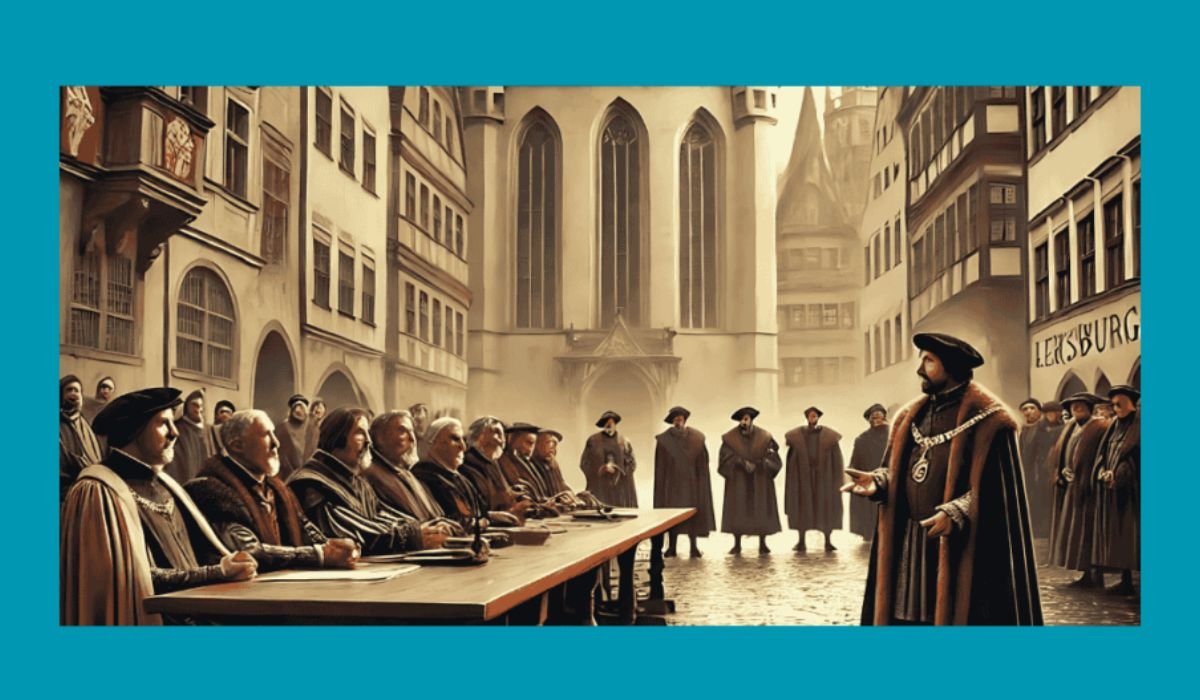Introduction
In the heart of the Renaissance, a time teeming with intellectual rebirth and cultural transformation, a figure named Conrad Peutinger II emerged as a beacon of knowledge and diplomacy. Born in 1475 amidst the flourishing cityscapes of Augsburg, Germany, Peutinger was more than just a scholar; he was a diplomat and a humanist whose contributions continue to echo through time. This article explores the multifaceted career of Conrad Peutinger II 1475, highlighting his scholarly achievements, diplomatic endeavors, and the indelible mark he left on the world.
Early Life and Education
Background on Augsburg, Germany in the 15th Century
Augsburg, during the 15th century, was a vibrant hub of commerce and culture. Its strategic location made it a crossroads for traders and scholars alike. The city’s atmosphere was rich with the ideals of the Renaissance, making it an ideal place for a young mind like Conrad Peutinger II to flourish.
Conrad Peutinger II’s Family, Upbringing, and Early Education
Conrad Peutinger II was born into a family well-versed in the traditions of learning and service. His early years were marked by an education that emphasized classical studies, fostering a deep appreciation for ancient texts and knowledge. This foundation set the stage for his lifelong dedication to scholarship and public service.
Exposure to Humanist Ideas and Intellectual Environment
The intellectual environment of Augsburg was a fertile ground for humanist ideas. Peutinger was immersed in a culture that celebrated the revival of classical learning. His exposure to the works of ancient philosophers and thinkers greatly influenced his worldview, propelling him toward a life of scholarly pursuits.
Scholarly Pursuits and Contributions
Exploration of Peutinger’s Interest in Ancient Knowledge
Conrad Peutinger II’s fascination with ancient knowledge was evident in his relentless pursuit of historical texts and artifacts. He dedicated himself to preserving and disseminating these treasures, recognizing their immense value to future generations.
Overview of Works in Geography, Cartography, and History
Peutinger’s scholarly interests spanned various fields, including geography, cartography, and history. His meticulous studies and maps provided insights into the world as it was known during the Renaissance, laying the groundwork for future explorations and discoveries.
Impact of Scholarly Works on Future Generations
The impact of Peutinger’s work extended far beyond his lifetime. His contributions to historical studies and geographical understanding continued to inspire scholars, fueling the quest for knowledge and discovery in successive generations.
Diplomatic Endeavors
Overview of Peutinger’s Role as a Diplomat
Conrad Peutinger II was not only a scholar but also a skilled diplomat. His role in managing political relations across Europe was pivotal during a time of significant upheaval and change.
Notable Diplomatic Missions and Their Significance
Peutinger’s diplomatic missions were marked by his ability to bridge cultures and foster understanding. His efforts were instrumental in maintaining peace and stability during the complex political landscape of the Renaissance.
Intersection Between Scholarly and Diplomatic Pursuits
The intersection of Peutinger’s scholarly and diplomatic pursuits was a hallmark of his career. His deep understanding of history and culture informed his diplomatic strategies, allowing him to negotiate with insight and empathy.
Legacy and Influence
Reflection on the Enduring Legacy of Conrad Peutinger II
The legacy of Conrad Peutinger II is one of enduring significance. His contributions to scholarship, diplomacy, and humanism continue to resonate, inspiring those who seek to understand the world and its history.
Discussion on How His Works and Ideas Continue to Inspire
Peutinger’s ideas and works serve as a wellspring of inspiration for modern scholars and diplomats. His dedication to knowledge and understanding remains a guiding light for those navigating the complexities of today’s interconnected world.
Examination of Influence on Later Scholars and Diplomats
Peutinger’s influence can be seen in the works of later scholars and diplomats who have built upon his foundation. His legacy is a testament to the power of knowledge and the importance of bridging cultures and ideas.
YOU MAY ALSO LIKE: Discover nuoilo 12h A Revolution in Daily Productivity
Conclusion
In conclusion, Conrad Peutinger II 1475 was a Renaissance man whose life and work continue to shape our understanding of history, culture, and diplomacy. His enduring legacy reminds us of the importance of preserving knowledge and fostering understanding across boundaries. For those interested in exploring his contributions further, we encourage you to seek out his works and immerse yourself in the richness of his insights.
FAQs
- Who was Conrad Peutinger II 1475?
Conrad Peutinger II was a prominent Renaissance scholar, diplomat, and humanist born in Augsburg, Germany, in 1475. He is renowned for his contributions to preserving ancient knowledge and managing political relations.
- What were Peutinger’s main areas of interest?
Peutinger’s scholarly pursuits included geography, cartography, and history. He was deeply interested in ancient knowledge and worked to preserve and disseminate historical texts.
- How did Peutinger contribute to diplomacy?
Peutinger played a significant role as a diplomat, managing political relations across Europe. His missions were instrumental in maintaining peace and stability during the Renaissance.
- What is the significance of Peutinger’s legacy?
Conrad Peutinger II’s legacy lies in his enduring contributions to scholarship, diplomacy, and humanism. His work continues to inspire modern scholars and diplomats.
- How can I learn more about Conrad Peutinger II’s work?
To explore Peutinger’s contributions further, you can seek out his works in historical studies and geographical research. Many libraries and online resources offer access to his writings.











